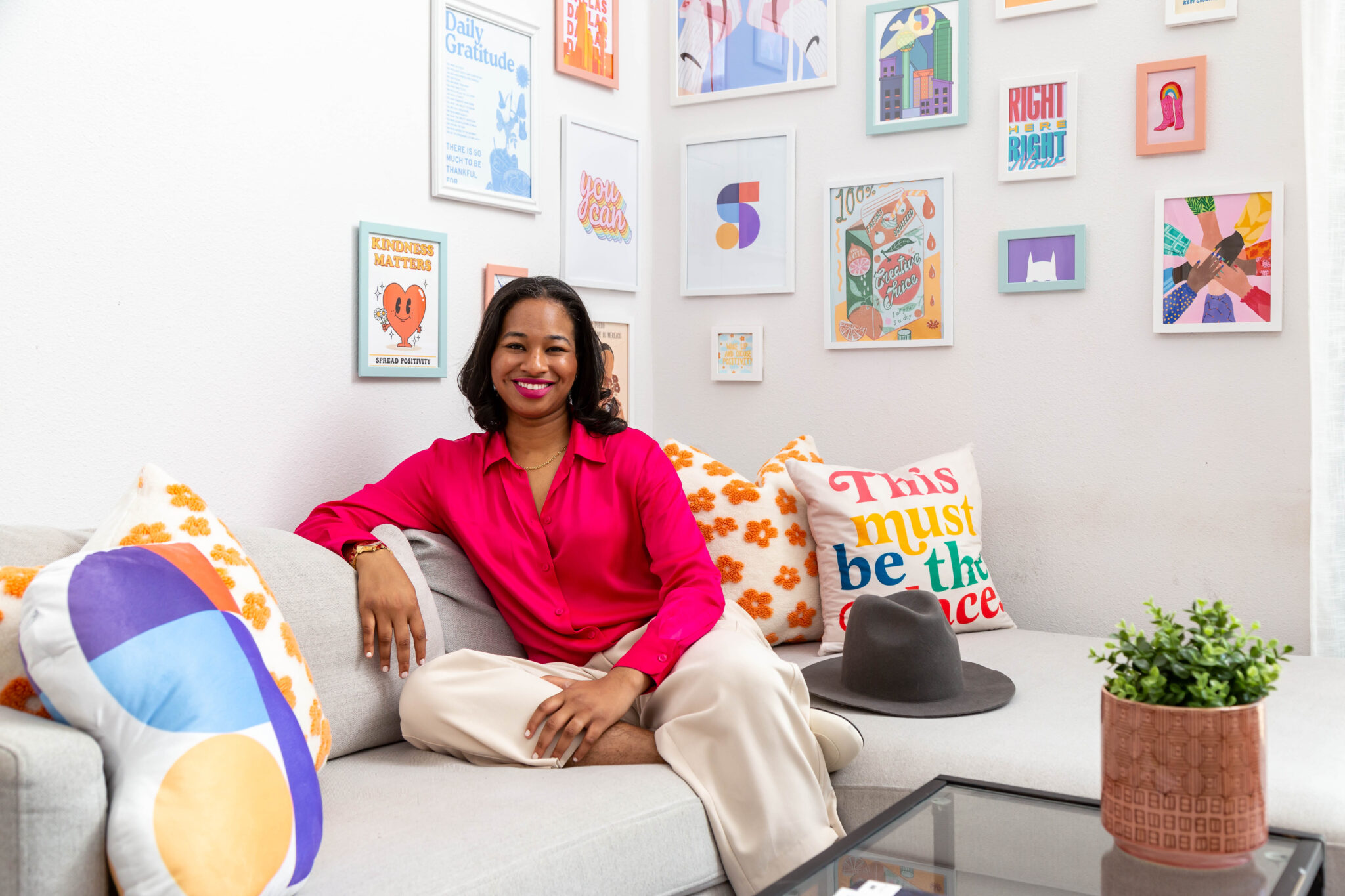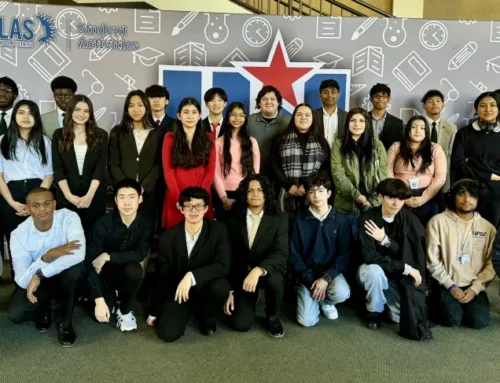Could the next world-shifting technology company be under development in Kessler Park?
Taylor Shead certainly thinks so.
As it stands right now, Shead sometimes gets quizzical looks when she explains that her company, STEMuli, is creating the first educational metaverse that will turn school into a video game.
But rather than being discouraged by the confusion, Shead says it is part of the motivation to build her company into a household name.
“I believe it’s going to change the way people see and think about the world and what’s possible,” Shead says.
Born and raised in Plano, Shead was the youngest of seven children who all went on to become Division 1 athletes. She says she spent her childhood working for good grades and academic accomplishments, always striving for validation from her parents by doing her best to live up to the expectations set by her older siblings.
Like her siblings, Shead went on to be a Division 1 athlete, playing basketball at Loyola Marymount University in Los Angeles. At the time, she wanted to become a facial reconstruction surgeon.
Shead says she struggled in her first year of college and lost her scholarship. But what was at first an event that caused “turmoil and grief” eventually planted the first seed that would grow into Shead’s passion for accessibility in education.
At the time, the first iPhone had just been released, but Shead says she was frustrated that technology companies had not yet begun finding ways to integrate technology and her schoolwork.
“When I would go on the road as a college athlete, my education wasn’t everywhere I was. I was looking at these apps on my phone like, how does this make sense? If I’m flying all around the country playing basketball, why are my notes not here? Accessibility to education is the problem that I experienced,” Shead says.
While living in California, Shead began attending entrepreneurship mentorships. She set her sights on starting a business, and her vision was to create a space that would connect students with mentors from around the world over video chat.
In 2013, Shead moved back to Dallas after realizing she had “the second-largest school district in Texas in her backyard.” In 2016, she launched STEMuli.
“I was on a mission to prove who I am to the world,” Shead says.
That first iteration of STEMuli, which utilized video chat and online communication for education, resulted in Shead being uniquely prepared for the challenges of the pandemic. Shead had already been working with Dallas ISD on a technology learning plan, so she was familiar with the district’s technological capabilities.
“I didn’t even have to call them to know that they were not in the position to be able to get kids online and connected with their teachers,” Shead says. “And so it was a business decision, it was a big pivot for us.”
Shead agreed to use STEMuli to develop a virtual classroom for Dallas ISD teachers. A year later, in August 2021, the first educational metaverse was released.
The video game integrates state curriculum standards with a playable hero’s quest. The game is something that can be used supplementally in the classroom, but it’s also something students can take home and play on the evenings or weekends.
“It’s supposed to absolutely disrupt education in the way that we know it functions,” Shead says. “From an equity standpoint, if we were to only try and get our video game in classrooms, there would be so much politics and so many things that would prohibit everybody from having access to it.”
Last year, Shead became the 94th Black woman in history to raise $1 million in venture capital. She says she is one of less than a handful of Black women in education to ever accomplish the feat.
“At the same time, it means a lot, it almost means nothing,” Shead says. “Because you still have to do something with the money that you get. And you still have to make it to the next level.”
Shead hopes to take the company public within the next 10 years. How she finds time to work towards that goal while also constantly flying between California, Texas, D.C. and New York, visiting classrooms and attending her daily yoga class, she isn’t quite sure.
But she is figuring it out, she says.
And while Dallas may not be a major tech hub, she says she is not ready to move away from her home city just yet.
“I have unfinished business in Dallas. Let’s just say that,” Shead says.






